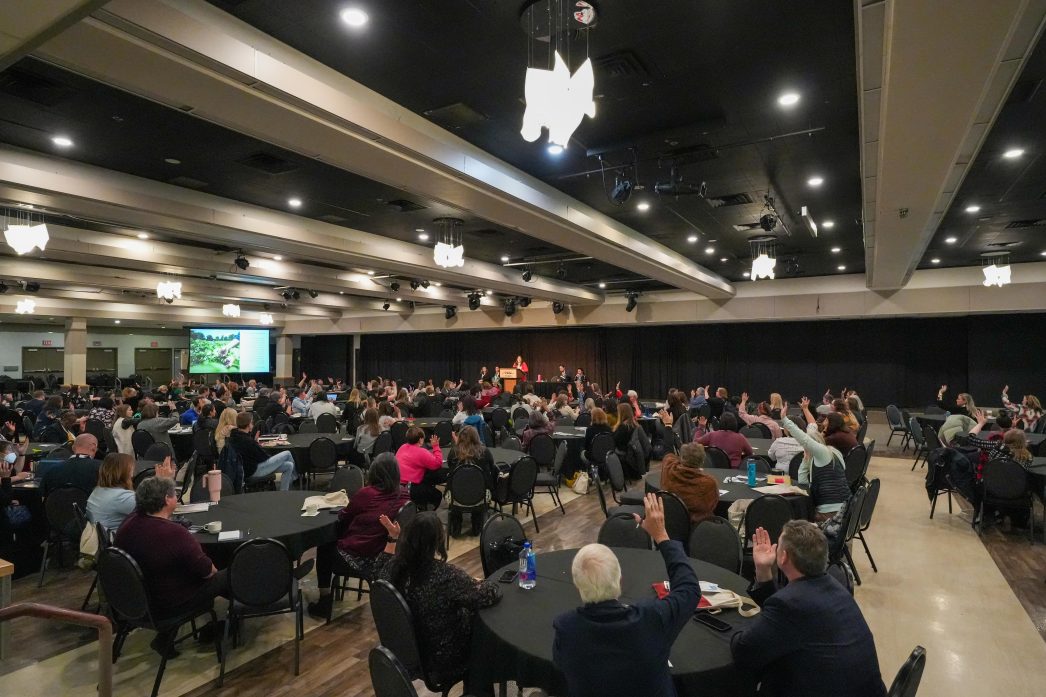Erika Makowecki was a recipient of the Student Travel Award for the Canada FASD Conference 2023.
In this interview, she gives her first-hand experiences of attending the conference and sharing her research.
Can you tell us a bit about yourself?
As a doctoral student in School and Clinical Child Psychology at the University of Alberta, I am passionate about community-engaged research focused on fostering inclusive dialogues aligning with community needs and priorities. When I’m not immersed in the research and academic world, you may find me out for a walk with my beagle while I listen to podcasts or audiobooks. Additionally, I share my passion for physical and mental well-being as a fitness instructor.
As a member of the ACCERT lab, I am currently collaborating on a number of research projects focusing on leveraging individual strengths to support healthy outcomes for folks with FASD in substance use treatment and mental health interventions. The research collaboration with CanFASD over the years has highlighted to me the impactful work undertaken by this organization.
Why did you come to the Canada FASD Conference?
I had the privilege of attending the conference as a presenter, representing my research team on a collaborative project with CanFASD and the ACCERT lab with funding from Health Canada that has been in progress for several years. This opportunity allowed me to connect and meet face-to-face with individuals whom I have engaged with through emails and virtual meetings on various projects. The conference was also well-aligned with my research focus and goals, providing an enriching experience to learn from fellow attendees and presenters.
What research/work did you share at the Conference?
My colleague, Devyn Rorem, and I presented a project titled “FASD-informed Care for Youth and Adults in Substance Use Treatment.” During our session, we covered key highlights from the guide we’ve developed from this multi-year and multi-phase project, titled “Moving Towards FASD-Informed Care in Substance Use Treatment.” We also shared insights from the new phase of the project, in which we are integrating developmental factors to guide responsive substance use treatment for youth with FASD.
What was your favorite part of the conference?
Undoubtedly, my favorite aspect was immersing myself in the diverse community full of passionate, knowledgeable, and devoted individuals. The connections forged and the inspiration drawn from engaging with others left a lasting impression, fostering enthusiasm for my current research endeavors and igniting aspirations for future projects. This experience also underscored the profound impact and significance of community-engaged research, emphasizing the crucial role of living and lived expertise in shaping the research process.
How did this award help you attend the conference?
As a doctoral student, the opportunity to attend conferences holds immense value, allowing me to not only disseminate my research but also gain valuable insights from other presenters and attendees. Receiving the CanFASD Student Travel Award supported my travel, accommodation, and registration for the conference, presenting a unique chance for continued professional growth.
What inspired you?
Witnessing the impactful work being undertaken, the global representation of attendees, and the unwavering passion evident throughout the conference was inspiring. The energy and excitement permeating the event left me invigorated and eager for the upcoming progress in the field. Audrey McFarlane‘s summary of CanFASD’s journey was impactful, recognizing the progress that has been made over the years.
What did you think was most innovative?
I found the approach to session curation particularly commendable. Each session was meticulously crafted to incorporate diverse perspectives, offering attendees invaluable insights from researchers, clinicians, and individuals with living expertise. This thoughtful design not only enhanced the overall conference experience but also fostered a dynamic and enriching learning environment through inclusive and empowering dialogues.
Thank you to Erika for sharing her experience with us! We certainly look forward to welcoming her back to the Canada FASD Conference in 2025.
Support students and people with lived experience to attend next year by sponsoring the conference! Download our sponsorship package to learn more about sponsorship opportunities.

